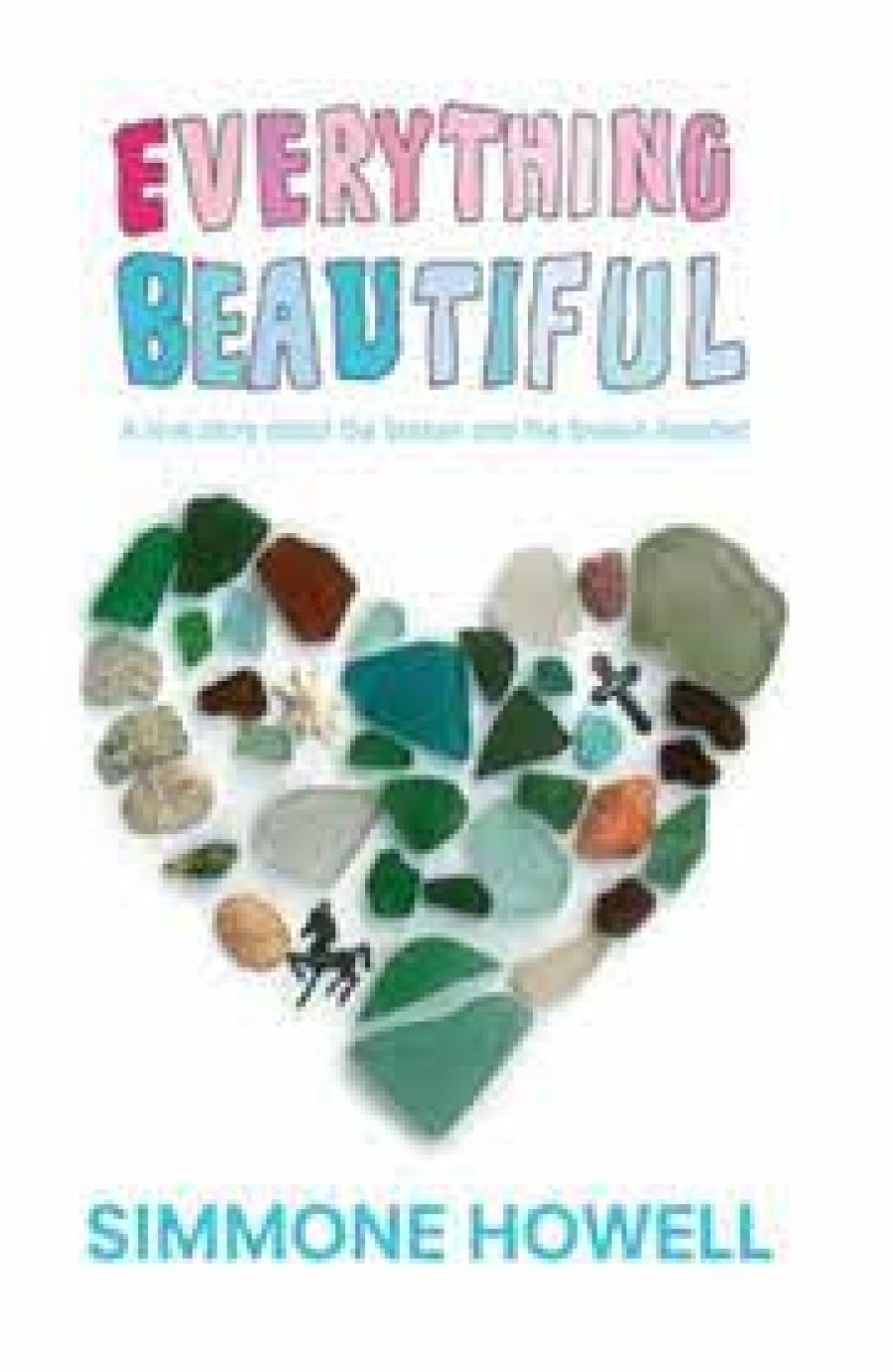
- Free Article: No
- Contents Category: Australian Fiction
- Review Article: Yes
- Article Title: Everything Beautiful by Simmone Howell
- Online Only: No
- Custom Highlight Text:
Just as God created the earth in seven days, Simmone Howell’s Everything Beautiful rebuilds the life of sixteen-year-old Riley Rose in a week spent at a Christian summer camp.
Two years after the death of her mother, Lilith (an allusion to Adam’s first wife), atheist Riley has become the quintessential bad girl – smoking, drinking and getting arrested. On the advice of her father’s new girlfriend, Riley is sentenced to a seven-day stint at the Spirit Ranch holiday camp, with nothing but a new hairstyle, a copy of Sir Thomas More’s Utopia (1516) and, courtesy of her best friend, a bus ticket home.
- Book 1 Title: Everything Beautiful
- Book 1 Biblio: Pan Macmillan, 16.99 pb, 278 pp
Everything Beautiful is a classic fish-out-of-water tale, exploring the nature of loss and new beginnings. When Riley is repeatedly ostracised by the other campers, she becomes fascinated with the mysterious, wheelchair-bound Dylan.
As in her début, Notes from the Teenage Underground (2006), Howell’s secondary characters are somewhat clichéd. The ‘pretty’ girl is both conceited and vacuous, the camp stud is only after one thing, and Howell succumbs to the ‘camp’ counsellor stereotype. There is also a rather obvious rebirth metaphor involving a cathartic journey into the desert.
The vivacity and gumption of the protagonist, however, saves the novel. Riley, despite the idiocy and cruel taunting of her fellow campers, remains bodyconfident. ‘And FYI,’ she retorts, ‘I weigh eighty-two kilos and I don’t give a fuck.’ Howell’s prose shines with punchy one-liners, particularly in Riley’s observations about religion, the camp and her peers: ‘Godliness was next to dubiousness […] camp was going to be a big smile full of bad teeth.’
The struggle between the blind faith of the young campers and Riley’s confusion over her own beliefs could have resulted in a trite, moralistic conclusion. Instead, Howell succeeds in creating a nuanced, interpretative ending, encapsulated in Riley’s ‘Manifesto Revised’, an epilogue of sorts, which simply states: ‘there are more questions than answers.’


Comments powered by CComment